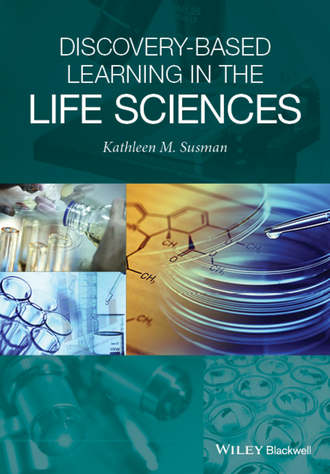
Полная версия
Discovery-Based Learning in the Life Sciences
For nearly a decade, scientists, educators and policy makers have issued a call to college biology professors to transform undergraduate life sciences education. As a gateway science for many undergraduate students, biology courses are crucial to addressing many of the challenges we face, such as climate change, sustainable food supply and fresh water and emerging public health issues. While canned laboratories and cook-book approaches to college science education do teach students to operate equipment, make accurate measurements and work well with numbers, they do not teach students how to take a scientific approach to an area of interest about the natural world. Science is more than just techniques, measurements and facts; science is critical thinking and interpretation, which are essential to scientific research. Discovery-Based Learning in the Life Sciences presents a different way of organizing and developing biology teaching laboratories, to promote both deep learning and understanding of core concepts, while still teaching the creative process of science. In eight chapters, the text guides undergraduate instructors in creating their own discovery-based experiments. The first chapter introduces the text, delving into the necessity of science education reform. The chapters that follow address pedagogical goals and desired outcomes, incorporating discovery-based laboratory experiences, realistic constraints on such lab experiments, model scenarios, and alternate ways to enhance student understanding. The book concludes with a reflection on four imperatives in life science research– climate, food, energy and health– and how we can use these laboratory experiments to address them. Discovery-Based Learning in the Life Sciences is an invaluable guide for undergraduate instructors in the life sciences aiming to revamp their curriculum, inspire their students and prepare them for careers as educated global citizens.

